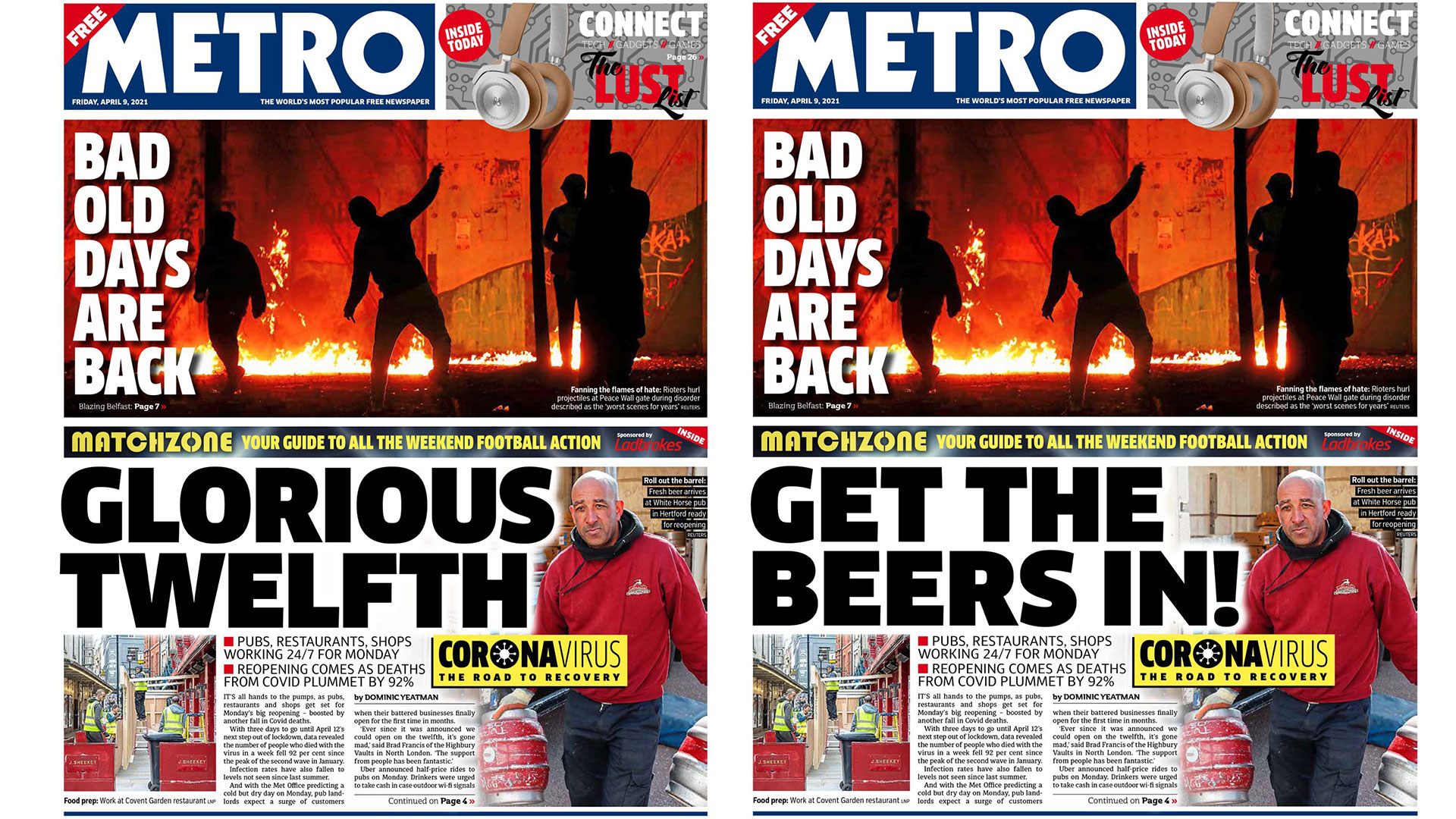For one side of the political and cultural divide, it’s a time to celebrate their culture and the victory of the Protestant King William of Orange over Catholic King James II at the Battle of the Boyne. For another, it’s a time when they have to endure sectarian, triumphalist marches through their neighbourhoods.
When I was growing up, it was a time when my mum would do a lot of sweeping of our front garden, as she watched wee boys burn cars down the road. Travel agents traditionally do well that fortnight as those fortunate enough to have the requisite funds bugger off to Spain, Turkey or Florida to avoid the turmoil.
This is part of the fabric of life for many in the UK. So why did nobody at the Metro spot the problem? These are intelligent, educated people. And they just didn’t see what they’d said.
I could talk about diversity in the UK’s newsrooms here, and that’s certainly part of the problem. The voices we hear are still too posh, too white, too (south east) English, too male. If there’d been anyone Northern Irish in that production team, this would not have happened. There is an important battle to be fought on diversity to make sure our media truly reflects our society. That needs to happen, for many more reasons than just to avoid embarrassing screw-ups like this.
But I don’t want to focus purely on the Metro, or even the media. Eye-watering though this example of insensitivity is, it’s merely a symptom of the wider ignorance about my troublesome corner of the UK.
Peace in Northern Ireland isn’t inevitable. It took hard work and painful compromise to achieve.
It’s acceptable in well-meaning, politically literate circles to say “I just don’t understand” about Northern Ireland. To shrug and move on to the “real” issues. I get that it’s complicated, and I understand that our education system has done a poor job in helping you comprehend, but that really isn’t good enough. Not when the stakes are this high. That shrug is part of the reason why the police had to use water cannons in Belfast last night for the first time in six years. It’s part of the reason that a civil war in the UK is a real possibility.
Peace in Northern Ireland isn’t inevitable. It took hard work and painful compromise to achieve, and it takes effort to maintain. One hundred years ago, Northern Ireland was born in conflict. Its tensions have never fully been resolved, but we had found a way to live together.
Indifference to the fates of my countrymen was what allowed Brexit – with its inevitably destabilising effects – to happen. Boris Johnson knew he could rely on his electoral base to care more about getting Brexit done than whether there was a border down the Irish Sea. The resulting Northern Ireland Protocol has stoked longstanding loyalist fears that they will find themselves in a united Ireland through British apathy. And so the tinderbox is set.
It’s 23 years tomorrow since the Good Friday Agreement was signed. It seems we’ve forgotten just what an achievement that was. So let me refresh your memory. More than 3,500 people were killed during the Troubles. An entire society grew up in fear and animosity, their futures curtailed, their ambition dented, their hope blunted.
That pre-1998 sense of hopelessness remains viscerally real to me. We felt like there was nothing we could do. But there is something you can do right now. You can care. Don’t turn away because it isn’t easy. Pay attention, listen, learn. Don’t forget us again.






